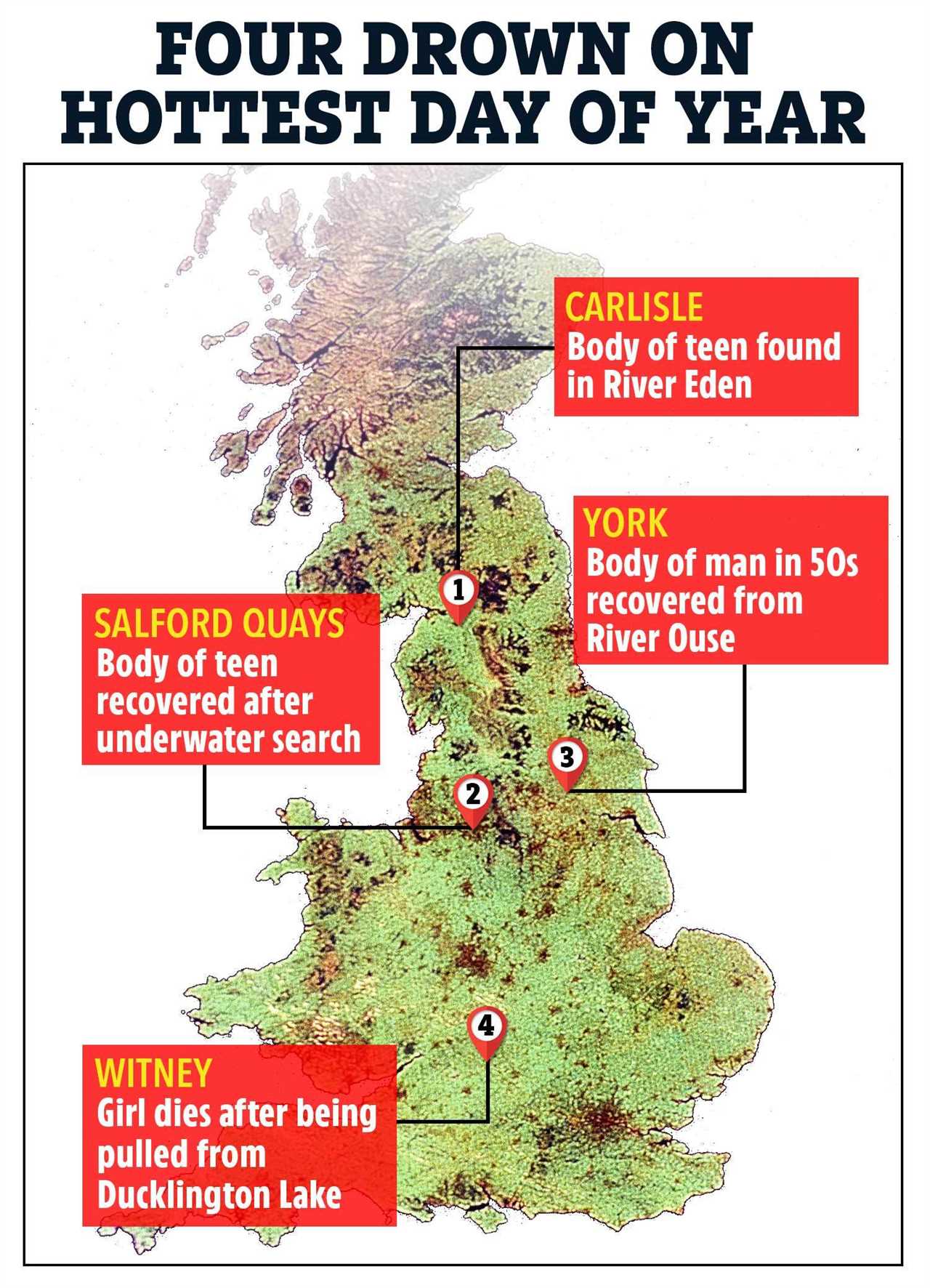BRITS are tipped to call in sick on their first day back in the office as England’s work from home order is dropped – with the sun beckoning them outside.
Shops and pubs are set for a bumper week while the heatwave continues, and “we could get up to 32C” says the Met Office.

Brits are expected to down ten million pints to toast Freedom Day on Monday.
On July 19 the Government will lift all legal Covid restrictions with social distancing measures scrapped, large-scale events back on and work-from-home guidance shelved.
But, predicts the Telegraph, with Britain basking in glorious sunshine, it’s unlikely that Brits will be stampeding back to their workplace.
Despite it being the first day of the government’s no work from home order, many are apparently keen to continue working from home this week to make the most of the weather.
Becky Mitchell, a meteorologist at the Met Office, said: “We could get up to 32C (89.6F) next week – it is possible each day for different places in the country.
“The most likely areas to get 32C are parts of the Midlands and down towards south-west England and potentially London, they are all going to see the highest temperatures in the coming days.”
Research from the Chartered Institute of Personnel and Development found that some 70 per cent of workers want to call in sick during such hot weather.
The Federation of Small Businesses added: “Employees’ days off in hot weather do happen and can be a big problem.”
HEATWAVE DEATHS
BrightHR said: “The dates lockdown restrictions ease are among the most-requested days off this year, outside major holidays.”
The London School of Economics and Political Science has warned, though, that the “UK, and the Government in particular, are not doing enough to address the mounting risks posed by heatwaves, causing many unnecessary deaths”.
“Few people realise that more than 2,500 people died during three brief periods of heatwave conditions in England last summer,” added Bob Ward, LSE’s policy and communications director.

Read our coronavirus live blog for the latest updates
He said: “The Government has ignored numerous warnings from experts and the nation has no comprehensive strategy for managing the risk from heatwaves, which are growing in frequency and severity due to climate change.
“Most of those who will die over the next few days have underlying health conditions, such as respiratory illnesses.
“Many live in houses or care homes that will overheat, resulting in temperatures indoors that are far higher than outside.
“It is not just high daytime temperatures that can prove fatal, but also warm nights.
“Cities are particularly high-risk areas during hot weather due to the ‘urban heat island’ effect, with dark building and road surfaces absorbing more of the sun’s energy, which creates temperatures that are several degrees higher than in surrounding rural areas.”
The Met Office has been working with Public Health England to ensure that people stay safe in the hot conditions, urging the public to stay hydrated, wear sunscreen and help anyone who is more vulnerable to the heat.
Warnings about extreme heat have been issued by medical authorities and vets, urging people to keep the vulnerable and animals safe.
And hay fever suffers have also been alerted that pollen levels will be “high or very high” across most of the UK.
Hot weather will hold out through Monday, dubbed ‘Freedom Day’, when after almost a year-and-a-half, Covid restrictions will be lifted.
The rule of six will finally be scrapped indoors and social distancing and table service in pubs is also getting left behind.
Face masks are becoming optional in many venues, and large-scale events like festivals, concerts and nightclubs are making a comeback.
It comes after the great British getaway saw millions hit the roads to bask in a super sunny weekend.
Unprecedented levels of traffic created lengthy bumper-to-bumper queues on major routes – and a spike in breakdowns in sizzling 32C heat.
‘BERMUDA BLOWTORCH’
A ‘Bermuda blowtorch’ heatwave brought summer blazing back thanks to a tropical blast from the Atlantic.
Britain was thrust into the furnace ahead of Monday’s Freedom Day – recording the hottest day of the year so far with temperatures exceeding 30C in both England and Wales on Sunday.
In England, 31.6C (88.88F) was recorded in Heathrow, overtaking Saturday’s record-breaking 30.3C (86.54F) recorded in Coton in the Elms, Derbyshire.
Wales recorded 30.2C (86.36F) in Cardiff, compared with 29.6C (85.28F) reached in Usk, Monmouthshire, on Saturday.
The weekend summer sizzler was driven by an ‘Azores High’ weather pattern, also known as a ‘Bermuda high’, experts explained.
Millions of people headed for beaches with roads busy on popular coastal routes as tourists flocked to enjoy the sunshine and blue sky.
WATER TRAGEDIES
Tragically, a girl has drowned in an Oxfordshire lake as four people died in water-related tragedies across the UK on the hottest day of the year.
Cops reveal they were called to Ducklington Lake, in Witney, at around 2.35pm on Sunday and the girl was then pulled from the water.
Thames Valley Police said that despite being taken to hospital, she later tragically died.
Meanwhile police have discovered the body of a 19-year-old man who vanished in Salford Quays.
Greater Manchester Police were unable to revive the teen, who went missing on Sunday afternoon.
“Sadly, despite a rescue operation at Salford Quays this evening, a 19-year-old man has lost his life,” a tweet on Greater Manchester Police’s Twitter account read.
“Our thoughts are with this young man’s family and friends, and the people who witnessed the tragic events.”
In York, the body of a man in his 50s was recovered from the River Ouse, close to the Water End Bridge on Sunday evening.
The RNLI was kept extremely busy over the weekend, helping to search for missing swimmers, towing stricken vessels to safety, and rescuing beachgoers in trouble in the water.
A Met Office spokesperson said of the scorching weather ahead: “We are expecting temperatures to continue on the high side right through until Thursday… there is a tendency for the highest maximum temperatures to migrate west.
“We are expecting Monday and Tuesday for the maximum temperatures to be in the South West and in South Wales, and then later in the week temperatures climbing across Northern Ireland and the North West.”







